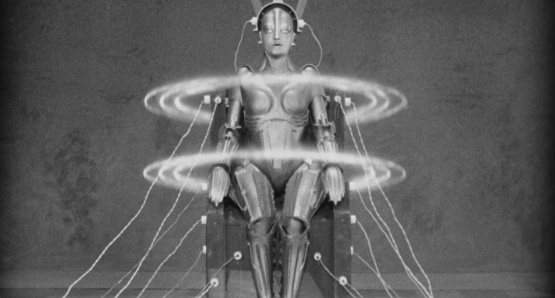Dubbed as the mothership of all science fiction movies, Metropolis tells about a city divided into two social classes: the elite who live leisurely in their futuristic city above and the workers living in horrible conditions underground. A theme that still resonates today. It says that the mediator between the mind and the hand is the heart.
Metropolis is so much ahead of its time. From the sets to the effects to the story and the music. In fact, many of its elements can still be found in movies made 50 years after its release. There's a mad scientist who works in an art deco laboratory. He created an evil she-robot (called Machine-Man in the movie) which could pass up as the mother of C3PO because of their striking resemblance.
Over the years, German film institutes tried to develop a version that is closer to the 1928 original. In 2002, restorers came up with a much longer version using parts found in the then East Germany state.
Many have given up hope that they can restore Metropolis to the version Lang premiered in 1928. Until 2008, a film archivist in Argentina heard of a rumor that their film archives have a 16-mm copy of the film, which was longer than any known copies. They sent it to Germany, and indeed, it was an authentic copy of the movie with some scenes that were thought gone. It added some 25 minutes to what was already.
The version I saw was this 2010 restoration. It was given the state of the art digital treatment. Unfortunately, the 16-mm copy was made in the 1970s straight from the original prints, and it included all the scratches and damages which cannot be remedied by today's technology. One can easily see where the new scenes were inserted because the scratches were evident, and since they were copied from 16-mm negatives, they have a different size. I really don't mind though, I would rather have these imperfections than not seeing these parts of the film.
So this is the closest we can get to the original film. I'd say that it is a must-see for everyone who loves cinema, in any genre. With this version, Fritz Lang's vision can be seen again with all its glory. Hopefully, Metropolis would spring another surprise that another more complete version comes out in another country.
(images from www.kinolorber.com)




No comments:
Post a Comment